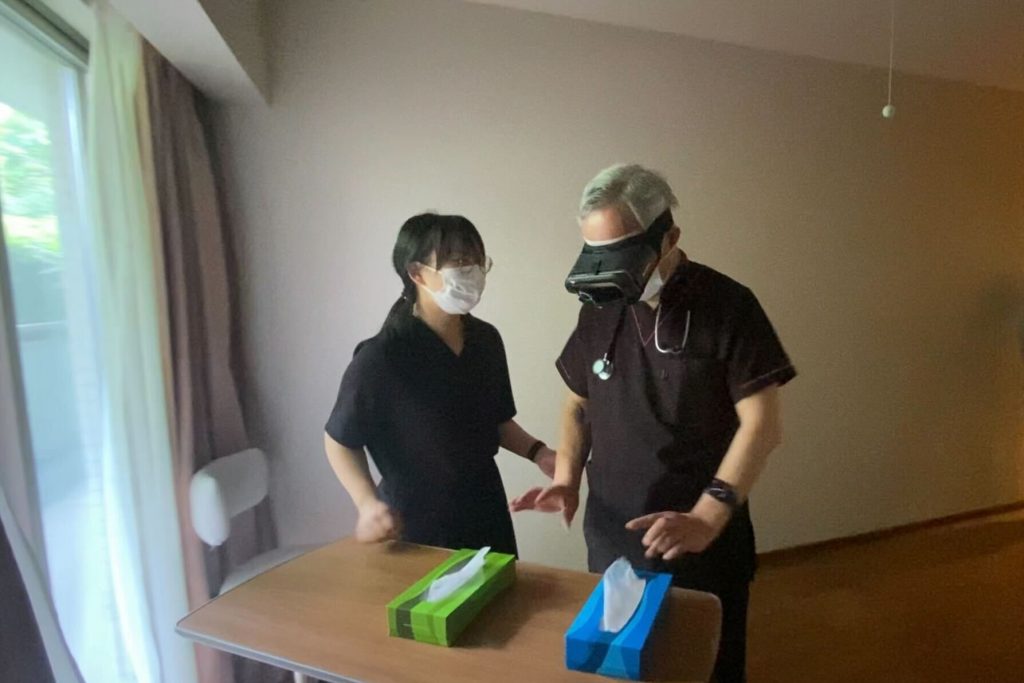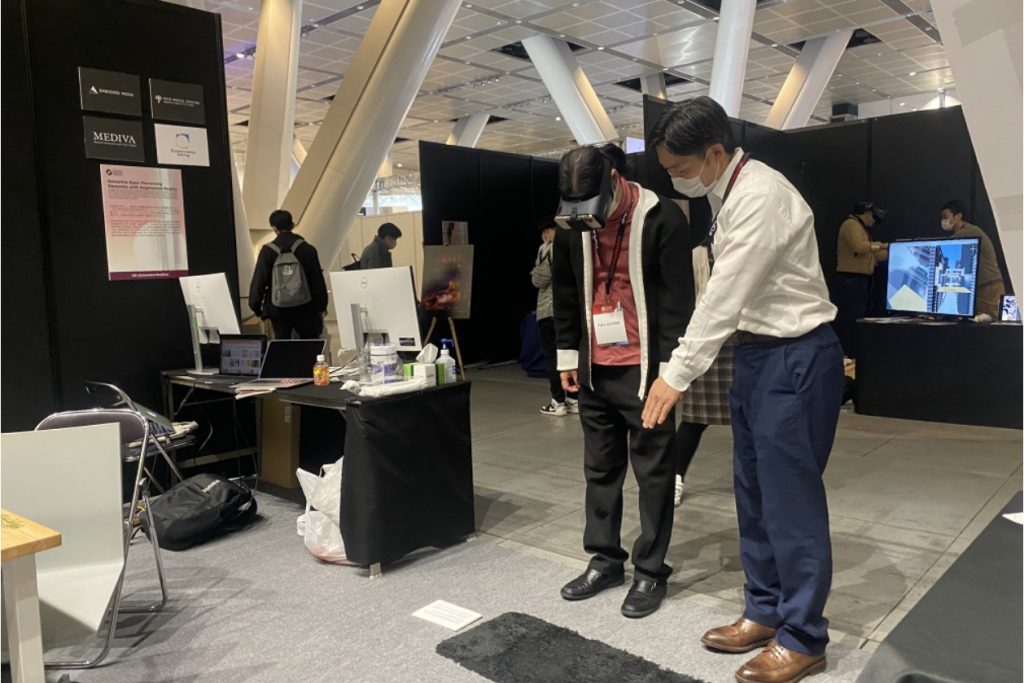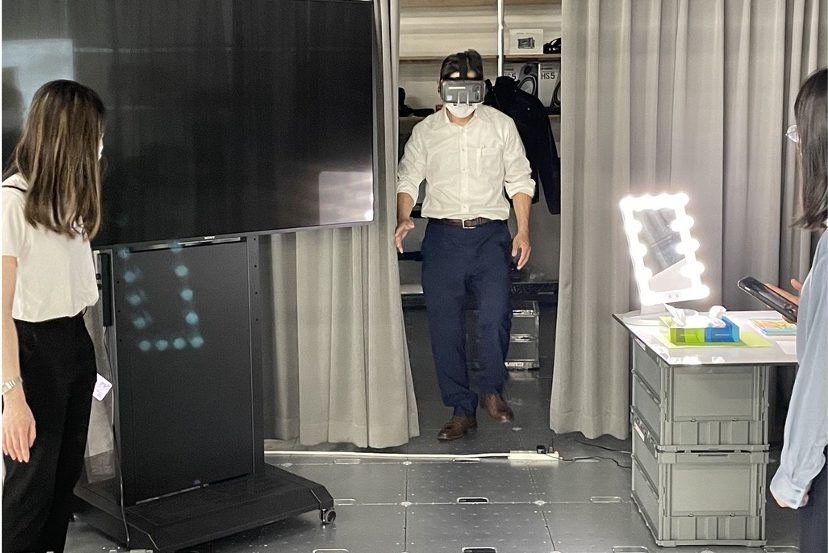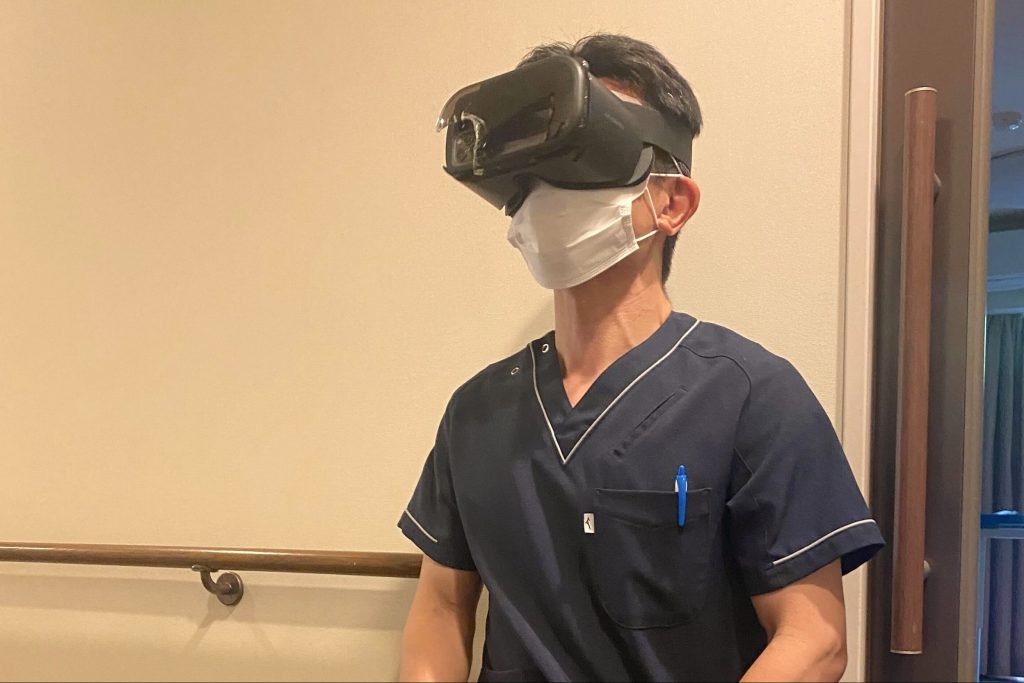2022 HAPI Second Prize Winner
Dementia is a growing national challenge in Japan. As the population ages, there is an increasing number of people with dementia in hospitals as well as in the community. Most hospitals, however, find it difficult to develop dementia care capacity and have paid little attention to the benefits of a dementia-friendly environment. Research has shown, however, that hospitalization has a major impact on people with dementia and their families. It can lead to delirium, progression of dementia, deterioration of behavioral and psychological symptoms of dementia (BPSD), and a decline in physical functions, which in turn make the post-discharge adjustment harder and make it difficult for patients to return home. There is a critical need for hospitals to adapt in order to better care for their patients with dementia.
Mediva Inc., a healthcare consulting and service operation company, has noticed that some medical and care professionals are not confident and feel stressed in dealing with people with dementia, partly due to a lack of awareness and partly due to a lack of knowledge and experience. In addition, most hospitals do not have dementia-friendly built-environments and do not utilise the environment as part of their dementia care strategy. Mediva realized that experiencing the perspectives of people with dementia has the potential to develop empathy towards people with dementia and increase an awareness around better dementia care and its connection to the care environment. This could help address the factors that contribute to the detrimental effects of hospitalization and reduce the burden on healthcare professionals.
Mediva, in collaboration with the Keio University Graduate School of Media Design (KMD), developed an augmented reality (AR) filter called Dementia Eyes to reproduce the visual effects that are experienced by people with dementia, such as poor depth perception, narrowing of the field of vision, and decreased contrast sensitivity. The project used a subsidy from the Ministry of Economy, Trade and Industry’s “Project to Evaluate the Effectiveness of Products and Services for a Society with Dementia.” When a user puts on the AR goggles, they can experience the world that people with dementia see and the resulting difficulties. Unlike virtual reality (VR), which is reproduced in a virtual space, AR lets the user experience this effect in their own environment. They still see the room they are in, but through the AR filter.
Training about dementia has traditionally focused on classroom lectures, but it is difficult for people to take knowledge learned passively, internalize it, and put it into actual practice. Mediva has developed a training program incorporating both active learning, such as “Dementia Eyes,” and traditional learning, such as lectures in collaboration with Dr. Asao Ogawa from the National Cancer Centre in Japan, the Dementia Services Development Centre (DSDC) at the University of Stirling in UK, and a group of doctors and nurses who work with people with dementia on a daily basis.
Mediva started offering this new type of service for hospitals, long-term care facilities, companies, governmental organizations, and the general public in 2021. This program enables the participants to experience the difficulties that people with dementia face in their everyday lives. Before and after the AR experience, Mediva provides opportunities for the participants to reflect on their own practice with other participants, usually colleagues, which reinforces the lessons learned and promotes behavioral changes. They then learn the theory and practice of dementia care and dementia-friendly environments to capitalize on their AR experience. They also get support for team-wide or organization-wide implementation of what they learned about dementia care and the care environment. For example, Mediva helps identify built-environment issues and solutions through the dementia-friendly environment assessment tool as well as through the AR experience, and helps implement solutions.
Mediva provided the Dementia Eyes AR experience to 147 healthcare workers and more than 250 members of the general public in the first six months after its launch. In feedback from this period, the majority of participants expressed that the experience of AR for dementia improved their empathy for people with dementia and made them view dementia as an issue of concern. Nurses and caregivers noted, “It made me reflect on my own caregiving practice,” and hospital managers pointed to increased motivation among nurses, with one stating, “I want this to be included in the curriculum of nursing schools.” Comments from those in the general public who experienced Dementia Eyes were similarly positive, indicating a much higher level of awareness and understanding after the AR experience.
In the future, Mediva plans to expand this service overseas, including in the Asian region, where the society is rapidly aging and there is a need to promote understanding of dementia care and dementia-friendly environments. By enabling Asian government officials, medical and care professionals, and medical education institutions to experience this service, Mediva believes their service can contribute to increasing awareness and deepening understanding of dementia, creating systems to help both people with dementia and healthcare professionals, and promoting better dementia care and dementia-friendly environments.
KEYS TO SUCCESS
- Listening to the perspective of frontline healthcare workers, such as healthcare professionals and managers, was key to the program. Mediva first set its objective as “promoting effective dementia care and dementia-friendly environments in the healthcare field” and sought to meet the needs for an evidence-based, easy-to-use, and pragmatic approach.
- Collaboration with academic institutions was critical to ensure the content was clinically sound and to develop the AR technology.
- Unlike VR, the AR technology allows people to view how their own surroundings might appear if they had dementia, which helps promote empathy and awareness.
- Before and after the AR experience, Mediva provides opportunities for the participants to reflect on their own practice with other participants, usually colleagues, which reinforces the lessons learned and promotes behavioral changes.
- Mediva also provides education on dementia care and dementia-friendly environments and supports the implementation of their learning into practice. For example, Mediva proposes specific solutions to environment-related issues that become clear through the AR experience and training program in addition to the dementia-specific environment assessment, and supports the implementation process.
Related Resources





